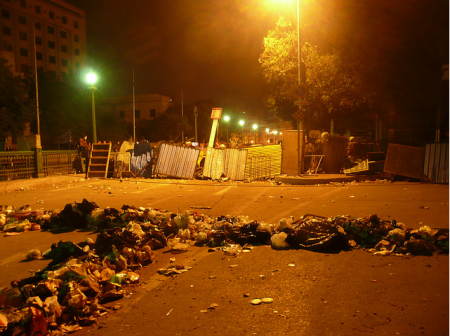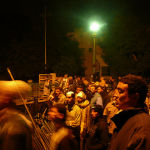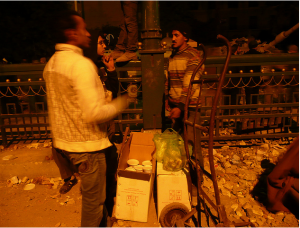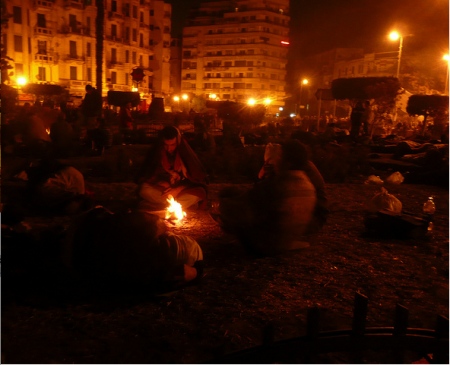
Following the ongoing convulsions in the Egyptian streets, I’m becoming more and more impressed by the research and thought that Terry Pratchett must have put into his novel Night Watch.

In typical Pratchett fashion, Night Watch has an amalgamation of influences, from fictional sources like Les Miserables, to historical events, like the Peterloo Massacre of 1819; however, the book follows a character immersed in the events that are remarkably parallel to what’s going on Egypt right now, especially with the Army trying to sit out events and things becoming somewhat medieval.

This is the first time I’ve been able to follow a revolution so closely, and it’s largely thanks to the volumes of raw reports streaming across the twitterverse, blogosphere and media websites. Pratchett gives us the wonderful characters that highlight the inherent conflict in the revolution: the police with their conflicting allegiances; the secret police that have to be dealt with; the idealists whose high hopes are bound to be dashed on the rocky shoals of human nature; and even down to the men selling food to the protesters behind the barricades.

I think I’m going to have to add this book to our reading list for next year.
At the end of Night Watch, the protesters win, and barricades come down when the old dictator is deposed. However, he’s replaced by a new dictator, who turns out to be just as bad as his predecessor. To paraphrase Pratchett, they’re called revolutions because they go round and round.
